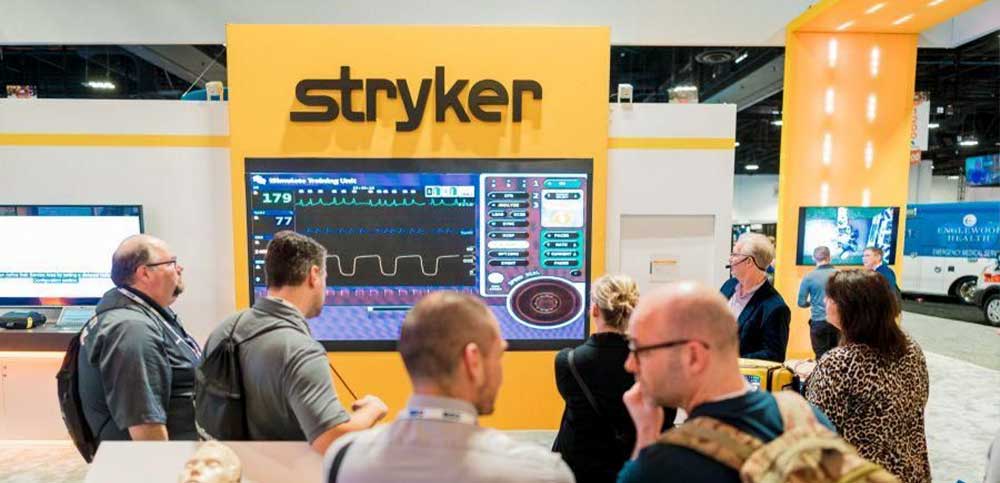Working With Event Exhibitors: What Amateur Program Directors Should Know
Hosting an event for your business is a great way to spread the word about your products and services while also boosting your visibility and ability to reach prospective partners and business associates.
If you are planning an event, knowing how to work with event exhibitors and what to expect can help you feel ready and prepared to get started.
First, who is an exhibitor?
An event exhibitor is an individual that represents themselves or a company and brand at an event, typically for promotional gain and/or exposure. Exhibitors typically attend events that apply to their business and the target audience they intend to reach.
Exhibitors may promote their business and brand by giving away branded items, also known as schwag, or even by being a guest speaker at a relevant conference or networking event.

Tip #1 Create an online registration, no question.
A program director will typically be the one to create an online registration area for guests and prospective attendees of any event you are planning or intend to host.
Online registration is highly advisable to keep track of attendees and those who may attend or are inquiring about additional information. Use an online registration system to keep track of exhibitor applications and the number of exhibitors your event has locked in and paid for to avoid overbooking.
Other benefits to having an online registration includes:
- CRM and event management
- Tracking and analytics
- Payment processing
- Ability to track capacity and tickets sold
- Ability to create and distribute coupon codes and discounts
- Create multiple ticket types, season passes, etc.
- Sell merchandise and ticket add-ons online
- Collect buyer information for future marketing purposes
Tip #2 Provide a detailed program outline
Program directors will need to create a detailed program outline that will include target markets and specific demographics the event intends to reach.
The program outline will cover everything that is necessary for the business, brand, or client in need. A detailed program outline can also be extremely informative to attendees and prospective donors or business partners who have a genuine interest in learning more about the topic or business at hand.
Having a detailed program outline also informs prospective vendors and exhibitors of what they can expect for their setup, and the amenities they will have available to them.
Tip #3 Set expectations for your event
It is always advisable to set expectations for your event so your guests, speakers, and prospective attendees all know what to expect while purchasing their tickets or deciding whether to attend or participate.
Exhibitors who plan to sponsor and/or attend your event should also know any additional actions they need to take in order to complete their setup or promotional display throughout the event itself. For example, if your event space provides electricity, but requires individual applications, inform your exhibitors well in advance to prevent mixups and/or a disorganized event.
*** Essentially you need to provide a list of rules, regulations and a checklist before the event.

Tip #4 Offer branding and package opportunities
Another way an event program director helps to streamline the experience of hosting an event is by offering branding and packaging opportunities for event guests and exhibitors.
From offering branding opportunities and logo placements to guest-blog spots and social media promotions, the options are virtually endless for providing exhibitors with marketing opportunities.
You can also create different promotional packages and pricing tiers for exhibitors to choose from while they are completing the registration and sign-up process.
Tip #5 Set an exhibitor limit
As with any corporate event, it is important to set an exhibitor limit, especially if you are working in a limited or already cramped space. If you are renting a venue, be sure to inquire about attendee limits and caps based on the space you are working in. Verify if you have any limitations, restrictions, or legalities that may prevent you from crowding the area.
Setting an exhibitor limit ahead of time will prevent confusion and overcrowding once your event is getting started. If possible, set a limit to the number of applicants your online registration system will accept for paid exhibitors who have an interest in attending your event.
If you are worried that you will not have adequate space to host your attendees and the guests who are interested in your event, consider turning to a virtual event. Hosting a virtual event provides you with virtually unlimited possibilities in terms of sponsors, promotional spots, and exhibitor marketing opportunities.
Tip #6 Establish your event’s online presence
One of the most important aspects of hosting a successful event or networking conference for any market or industry includes having an online presence. Without an online presence, spreading the word about a business, brand, idea, or even an entire market becomes increasingly challenging.
Working in a world without an online presence severely limits your opportunities and ability to appeal to a much wider audience, regardless of the market or industry you are working in and representing.
Establish your event’s online presence with an official website and/or an official event page for sign-ups and vendor/exhibitor applications.
(1) Use your official website or online presence to not only promote the details and location of your upcoming event but also what to expect for both guests and exhibitors and/or guest speakers.
(2) Use your website to highlight the vendors, exhibitors, and speakers you intend to host to generate buzz and interest surrounding the event.
(3) Showcase different exhibits, speaking panels, and activities you have planned for your upcoming event on your event’s official website or with the use of your corporate social media pages.
Tip #7 Don’t forget the technical and legal necessities
As with hosting any corporate event, do not forget the legal necessities and technical requirements that may need to be in place before you open your event to the public.
- Review contracts
- Legal requirements
- Refund policies
- Exhibitor or sponsor contracts
- Permits
- Terms and conditions
-
Whats allowed and not allowed into the event
Work together with an attorney or legal specialist to ensure you are legally protected when planning any corporate event that involves sponsors, exhibitors, and program directors. Understanding the basics of working with event exhibitors as a program director can help you through each step of planning a corporate event, from start to finish.






